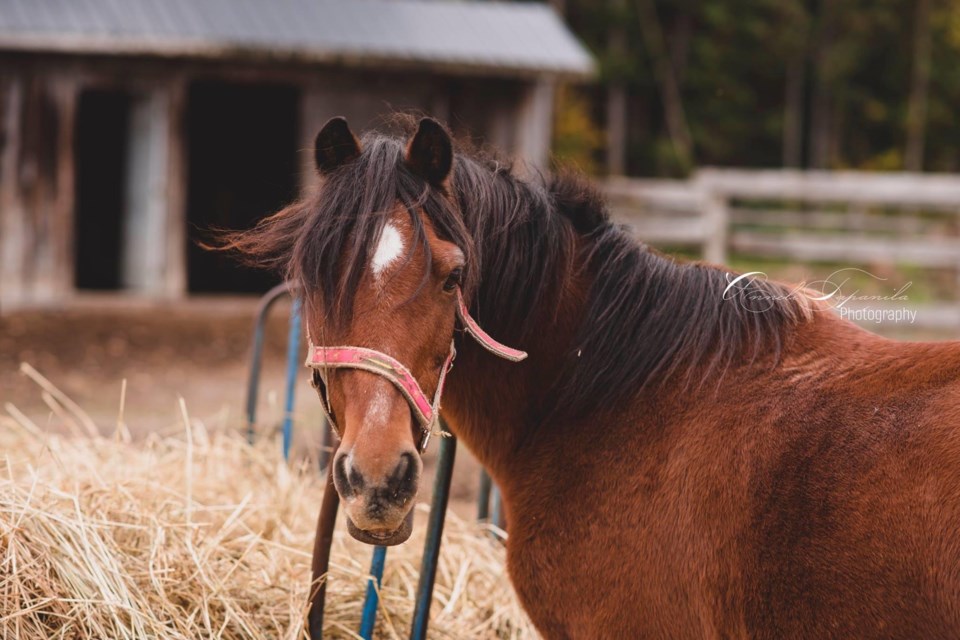Life is anything but ‘stable’ for Rushmount Farms as the COVID 19 pandemic drags the facility into a financial crisis that is putting dozens of horses in danger.
Rushmount Equine Sports, in Severn Township, is home to 26 horses, said the facility’s owner, Heidi Mueller, who has been riding horses for 40 years. She has never seen anything like this.
“We are currently in the state right now where we are going to be selling (our) school horses,” Mueller said.
For the horses that can’t be sold, Mueller is looking at relocating them to an open field where they could eat grass, which could be dangerous for the animals as school horses tend to be older and get upset at a change of environment.
“We have horses who feed on hay and not on grass, so you could end up with horses who get sick” and die, Mueller fears.
The lack of funding to feed and take care of the animals follows the cancellation of both Trillium horse shows, which helps keeps Rushmount alive, financially, through the lean winter months.
Already, four schooling shows have been cancelled and the first month of their summer camps, that were slated for July, are also expected to also be cancelled.
All the cancellations have cost Rushmount about 80% of their expected income. The enterprise does not qualify for the $40,000 federal business loan as they don’t have a $20,000 payroll.
“We have no help at all and nothing has changed here. I still have 26 mouths to feed, house and bed ... it’s not good at all,” Mueller said.
To make matters worse, the price of a bale of hay has skyrocketed from $50 to $90.
“I got hay sitting here that will last a month, but once it’s gone I’m going to be in trouble,” Mueller explained.
Some equine farms across the country are in even worse shape than Rushmount due to having more horses. Those farms are starting to euthanize their horses and, in some cases, horses are being taken to zoos to serve as feed for other animals.
It’s possible that Mueller will soon be forced to have to make a similar decision.
“I would never take mine to the zoo, but I would have to put them down here on the farm,” she said.
Thankfully, some community members have reached out to help.
“People are amazing. The previous owner of one of our school horses has volunteered to sponsor (it) until this is over with,” Mueller said through tears.
“We have a lot of great clients who are offering to buy a bag of grain or some hay to keep us going.”
For people who are interested in helping Rushmount Farm through their time of need, Mueller says the biggest help would be sponsoring one of their 15 school horses.
“There are hundreds upon hundreds of kids who have ridden our horses and if they want to support them, we need donations,” Mueller said.
For people who want to sponsor a horse, there is information on their website (http://www.rushmount.com) on how to set up an e-transfer donation. The financial support helps cover the basics to keep the horses going. She said it costs about $175 per month to feed the outdoor horses and $300 for the indoor horses.
Equine Canada sent Rushmount Farm an emailed statement over the weekend that notes the curve is flattening and once business resumes, the farm is going to have to follow a lot of new and strict safety protocols.
“It’s going to be difficult because we won’t be able to open to the capacity that we were open at before. Our income is going to be diminished no matter how we slice it,” Mueller said.
Mueller believes that if they can survive the pandemic, it will take three to four years to return to solid financial footing.
